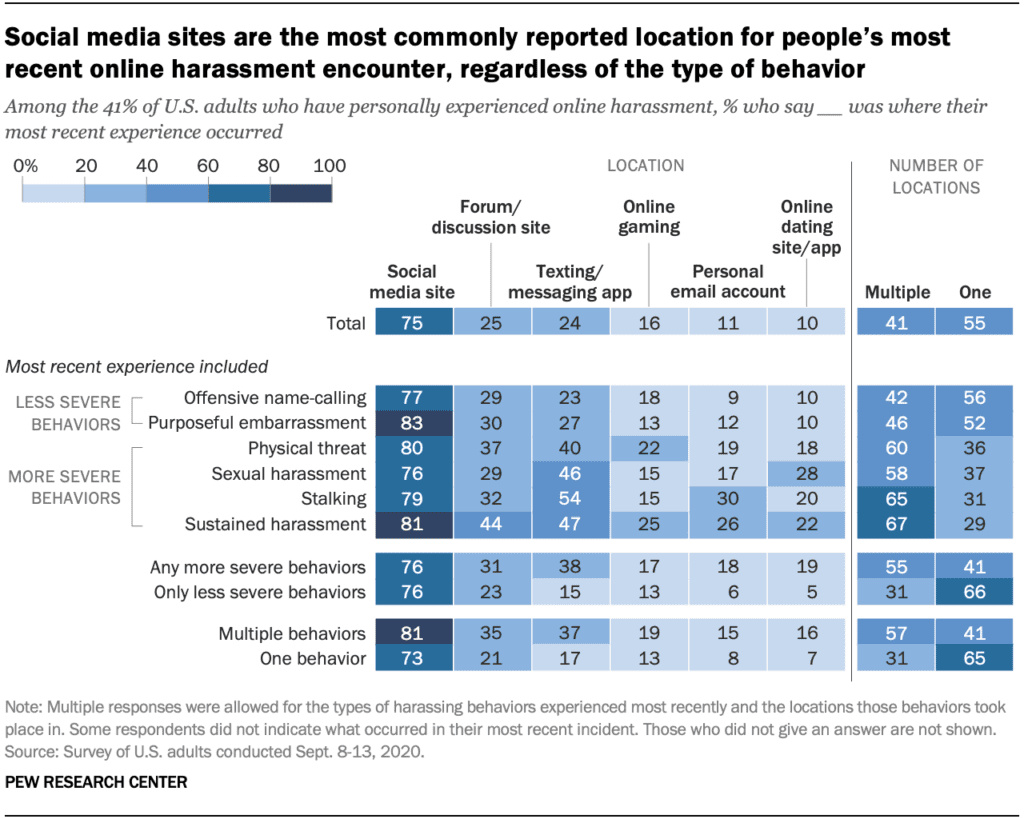Among the 41% of U.S. adults who have experienced online harassment, 75% said their most recent experience happened on social media, according to a recent report from The Pew Research Center.
Although social media sites have been the most common places all Americans encounter online harassment since 2014, adults who responded to the survey, which was administered from Sept. 8-13, 2020, said their most recent experience with harassment occurred in other online platforms too, including:
- Forum or discussion sites (25%)
- Texting or messaging apps (24%)
- Online gaming platforms (16%)
- Personal email accounts (11%)
- Online dating sites or apps (10%)
A further breakdown of the 2020 data, seen in the chart below, shows the location of the harassment and the type of harassment experienced, including offensive name-calling, purposeful embarrassment, physical threat, sexual harassment, stalking, and sustained harassment.

The latest analysis also determined certain kinds of harassing behaviors are more likely to happen in certain online locations. For instance, respondents who most recently faced harassment over a sustained period were more likely to have experienced it while using a texting or messaging app (47%) or on an online forum (44%) compared with the overall respondents whose most recent harassment of any kind took place on these platforms.
Similarly, those who said they had most recently been stalked or sexually harassed online were more likely to have experienced these types of harassment while using a texting platform (54% and 46%, respectively) compared with the broader rate of harassment on those platforms.
Additionally, those who were most recently stalked are roughly three times as likely to have experienced this harassment through email (30%) compared with the share of all whose latest harassment incident was email-based (11%).
Overall, the most common types of harassment across all six platforms are classified as less severe, which include offensive name-calling and purposeful embarrassment. However, it was also determined that certain online platforms see higher rates of more severe harassing behaviors than on other platforms.
For instance, recent incidents on dating sites (60%), in personal emails (57%), or in a texting or messaging app (52%) are especially likely to involve at least one more severe behavior.
Furthermore, those who were most recently harassed on a dating app or site are around three times as likely to say the harassment was sexual, compared with the general prevalence of sexual harassment in recent encounters (36% vs. 13%).
To read about additional findings and to review more charts, check out the full report.







